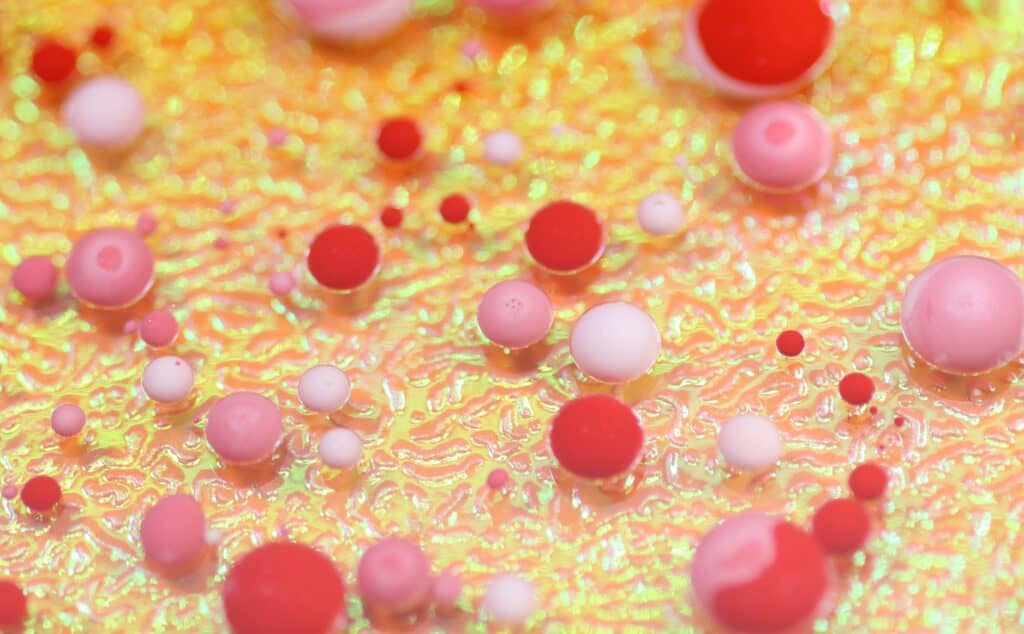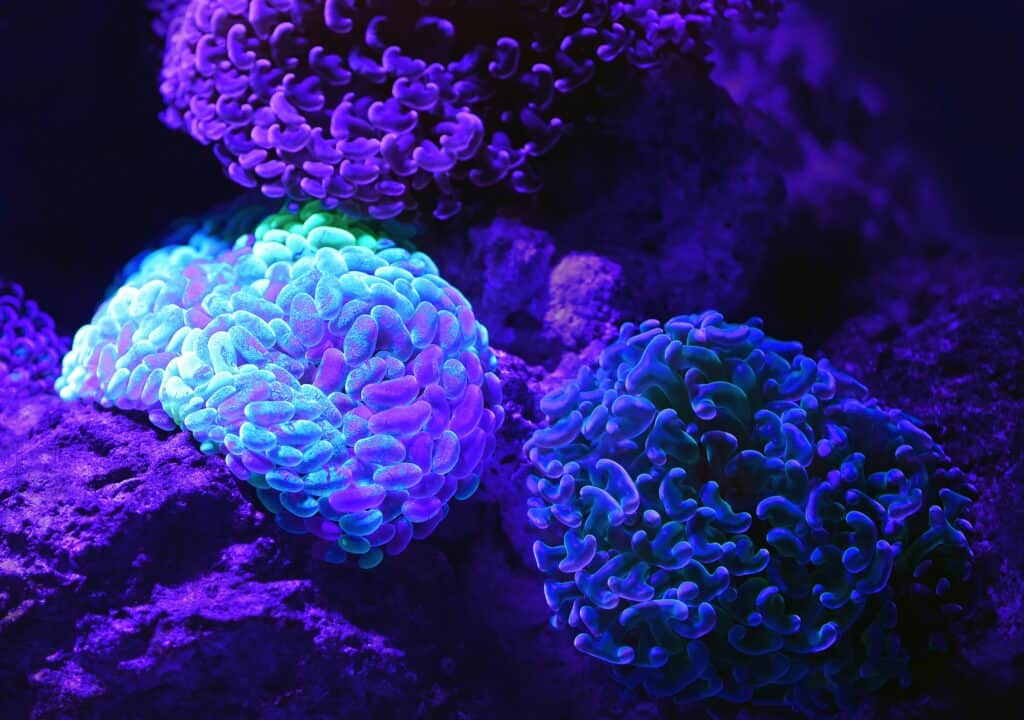Without a concrete study plan, the week leading up to your VCE Biology Exam can be a very trying time.
It’s all too easy to succumb to the pressure and stress, and run around in circles not knowing what to do. Here’s where our 7 day action plan comes in!
What are the things you should be doing though? How should you prepare? What tips will boost your study effectiveness? We’ll answer these questions in our plan below so that you’ll be bright and ready come the day of your VCE biology exam.
Let’s dive in!
Day 1 of the VCE Biology Study Plan: Priming Yourself For the Exam
Day 2: SAC Reflection and Practice Exam
Day 3: Exam Review and Subsequent Preparation
Day 4 of the VCE Biology Study Plan: Another Practice Exam
Day 5: Practice Exam with Less Time
Day 6: Practice Exam with Even Less Time
Day 7 of the VCE Biology Study Plan: Final Review
Day 1 of the VCE Biology Study Plan: Priming Yourself for the Exam
You (hopefully!) would have taken comprehensive and detailed notes during class.
For the exam, less is more — you will want to make sure your notes are as concise as possible. Compare the following three sets of notes for the same concept.
| Notes 1 | Notes 2 | Notes 3 |
|---|---|---|
| Antibodies are quaternary proteins - they are made of two heavy chains and two light chains held together by disulfide bonds. The ends of one pair of heavy and light chain is highly variable, and differs between different antibodies. This is called the variable region, and is the part of the antibody that binds to the antigen. | Antibodies (Ig) Quaternary (two heavy and two light chains w/ disulfide bonds End = variable (binds to antigen) | Ig, quaternary, heavy and light. Variable binds. |
The first is relatively detailed and might be the type of response you write in your exam response. However, learning this description word for word is asking for trouble!
The second is likely the type of note you took during class. It may not suffice for an exam response, but it is an excellent summary of points relating to a concept.
The third is extremely concise and much easier to remember. However, it makes no sense out of context!
Feel free to take some note-taking inspiration from our Unit 4 Biology summaries here!
Key Takeaways from Day 1 of the VCE Biology Study Plan
What you’ll want to do is try to memorise the third and understand the second. You’ll use this to write out the first.
To do this, identify the key words that you’ll need to effectively memorise a concept — this produces the Notes 3. Once you have these, check that using only Notes 3, you can:
- Remember all related concepts written out in Notes 2
- Write out a strong response (Notes 1).
Tip: To solidify your knowledge, explain your concepts out loud as if you were teaching it.
Even if this is just to the wall behind you, that ‘s ok. But, recording yourself — as embarrassing as it may be — would be optimal!
This will likely take you a full study day.
Don’t just do this for the sake of doing it — by the end of this, you should be able to write out a full exam response while rote memorising very little.
Day 2: SAC Reflection and Practice Exam
Step #1 in Day 2 of the VCE Biology Study Plan: SAC Reflection
You would have completed several SACs for VCE Biology.
Use this as an opportunity to review your performance on those SACs. Consider how you can use that information to better help you for the exam.
Step #2 in Day 2 of the VCE Biology Study Plan: Practice Exam
Then, it’s time to do a practice exam!
Pick out a relevant exam and attempt it. Ideally, this should be a recent VCAA exam. Try to complete it under exam conditions at first.
Once you’ve done this, do a bit of self-reflection by asking yourself the following questions :
Question #1: Consider which questions you were unable to answer. Why was this?
Common reasons include forgetting the related concept, not understanding a particular word(s) in the question, or maybe you just didn’t see the question!
Question #2: Consider which questions you found difficult.
Ask yourself why you found the question difficult — was it an application of a concept you had never considered?
Question #3: How did you feel overall
Did you feel the time crunch, or did you have lots of time to double check answers? Did you feel like you had a plan going in?
Use your self-reflection answers to formulate a plan moving onwards, including steps such as:
- How will you change your plan for during the exam? For example, consider what you will do during reading time.
- What concepts would you focus your revision on?
Now, look at the same exam and refer to your notes with unlimited time.
See how this changes how you answer questions. This might also reveal questions which you thought you answered well, but maybe missed a thing or two!
That is the practice exam done! Day 1 and Day 2 are designed to optimise our preparation for upcoming days.
Note: We haven’t checked exemplar answers yet. It is usually good to wait a bit of time before checking answers, as you have already answered them with the assumption you are correct. This can lead to biases in how you review the questions.
You should check out our ultimate list of all past VCE exams to help you study!
Day 3: Exam Review and Subsequent Preparation
Now is when you should check the answers.
Day 3 of the VCE Biology Study plan will be focussed on improving our understanding of these areas. Reflect on how you did. Keep an error log to keep track of which questions you got wrong, and why you got it wrong.
Tip: If you have the option, it’s even better if you can find a peer to check for you!
Here’s where we will tailor our revision to exactly what we need to do.
Identify concepts that you want to spend more time on. This is based on the questions you struggled the most on. For today’s goal of the study plan, here are 3 study strategies to help you improve your VCE Biology knowledge:
Study Strategy #1: Explain the Concepts to Yourself
Teaching the concepts out loud is a quick way to get yourself learning a difficult concept.
If you notice yourself struggling at certain points, that indicates an area for improvement. Refer to other resources such as textbooks and internet websites to consolidate your understanding of these areas.
Study Strategy #2: Create Diagrams and Mindmaps
Creating visual representations of concepts works wonders to help your brain absorb all of the complicated info!
For example, instead of the notes above, we could use a diagram like this to describe antibodies. This also helps as some questions do ask for a diagram!
Study Strategy #3: Cherrypick Questions from Older Exams
Older exams usually have some concepts which are relevant — don’t forget to use them!
There will also be topics which will have been removed. So, do be careful that you pick out questions which you know are relevant!
Day 4: Another Practice Exam
In the last two days, you would have reflected on and devised a plan to better tackle future exams.
Implement this plan to try and improve how you did compared to the last exam.
Try to do the exam without notes and under timed conditions. The most optimal approach would be to also do the exam at the same time as your real exam, and in a room that is similar to the proper exam.
As with your previous practice exam, review the answers a few hours after you’ve completed it. Reflect on what changes you would implement the next time, and add anything you need to your error log.
Day 5: Practice Exam with Less Time
Instead of giving yourself 2 and a half hours, do a practice exam in 2 hours and 15 minutes.
There are a few reasons this is a good idea:
- It will apply more pressure on you, which is likely closer to what you’ll feel in the real exam.
- You will want extra time to double check all your answers in the real exam. By cutting your time short, you would essentially get more time in the actual exam to do this.
- You will practice writing more concise and efficient responses. Beware, this is a double-edged sword as students often fall into the trap of sacrificing detail! This is a tricky skill which you will come to practice.
As always, reflect on how to improve on your future exams. It’ll become harder and harder to work out changes you will want to make.
This is a good thing as it shows you are applying your learning from previous exams!
Day 6: Practice Exam with Even Less Time
Now try the same thing as Day 5 of your VCE Biology Study Plan, but give yourself 2 hours.
If you were able to replicate this for your exam, this gives you 30 minutes to double check and finesse all your answers. Alternatively, it’s an extra 30 minutes of leeway to more thoroughly read questions.
Either way, it is a very good safety bubble to have and will help put your mind at ease come the exam!
Day 7: Final Review
This is the day before your exam! The crucial thing is to not exert yourself, as you want to be in tip-top shape for the exam.
However, there are still things we can do that will still assist you in your preparation.
#1: Review your error log
Are there any trends that you have noticed? Spend some time revisiting those questions, and see if you can successfully answer them the second time around.
#2: Review your exam plan
What will you do during reading time? Do you have a plan for when you don’t know the answer to a particular question? These are things to consider when you are sitting your exam.
#3: Focus on Your Areas of Weakness
Create short summaries of any topic you still don’t feel comfortable on. It is likely you are proficient at most topics, with just a few that you are still a little shaky on. Small, simple revision for these shakier topics will prove beneficial for the exam.
#4: Take Care of Yourself
Finally, make sure to sleep and eat well! This is constantly mentioned by many sources, but for good reason.
And, That’s All for your 7 Day Study Plan for VCE Biology!
That was our guide for the week leading up to the exam!
Following it to the letter will definitely help in your exam revision. However, you may have other exams (or general matters) that you will also need to worry about.
you may find that you have to modify this plan, which is absolutely fine — the key thing is to understand the principles underlining good exam preparation. Good luck for your exams!
Also need to prepare for your VCE Chemistry exam? Discover how to use the VCE Chemistry data book effectively!
Are you looking for some extra help with your VCE Biology Exam?
We have an incredible team of VCE tutors and mentors!
We can help you master the VCE Biology study design and ace your upcoming VCE assessments with personalised lessons conducted one-on-one in your home or online!
Looking for a one-on-one tutor in the Footscray area? Or a VCE expert to help you in Doncaster? Get booked with one of our expert tutors today!
We’ve supported over 8,000 students over the last 11 years, and on average our students score mark improvements of over 20%!
To find out more and get started with an inspirational VCE tutor and mentor, get in touch today or give us a ring on 1300 267 888!
Kevin Chen recently completed his Bachelor of Biomedicine at the University of Melbourne. He is now undertaking an Honours year, where he is investigating the rise of hospital superbugs. Kevin lives by the motto “smiles go for miles!”






